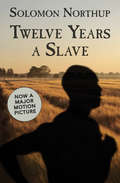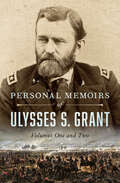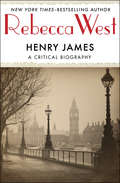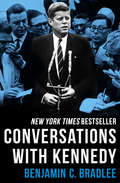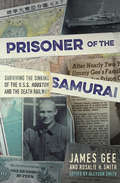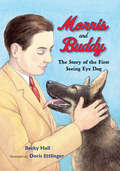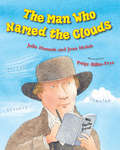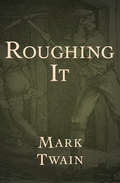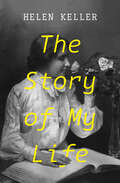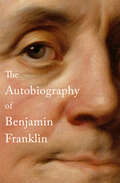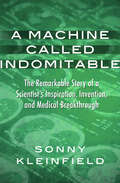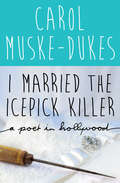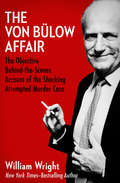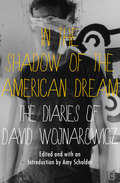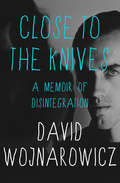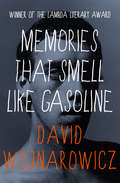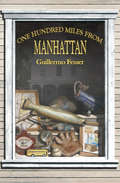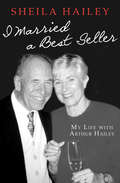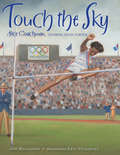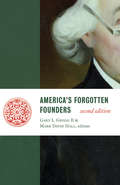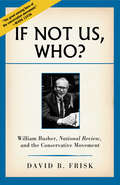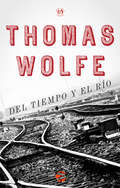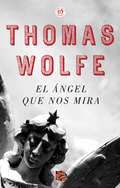- Table View
- List View
Twelve Years a Slave: A Memoir Of Kidnap, Slavery And Liberation
by Solomon NorthupThe harrowing true story that inspired the critically acclaimed film The son of a freed slave, Solomon Northup lived the first thirty years of his life as a free man in upstate New York. In the spring of 1841, he was offered a job: a short-term, lucrative engagement as a violinist in a traveling circus. It was a trap. In Washington, DC, Northup was drugged, kidnapped, and sold into slavery. He spent the next twelve years on plantations in Louisiana, enduring backbreaking labor, unimaginable violence, and inhumane treatment at the hands of cruel masters, until a kind stranger helped to win his release. His account of those years is a shocking, unforgettable portrait of America&’s most insidious historical institution as told by a man who experienced it firsthand. Published shortly after Harriet Beecher Stowe&’s abolitionist classic Uncle Tom&’s Cabin, Northup&’s memoir became a bestseller in 1853. With its eloquent depiction of life before and after bondage, Twelve Years a Slave was a unique and effective entry into the national debate over slavery. Rediscovered in the 1960s and now the inspiration for a major motion picture, Northup&’s poignant narrative gives readers an invaluable glimpse into a shameful chapter of American history. This ebook has been professionally proofread to ensure accuracy and readability on all devices.
Personal Memoirs of Ulysses S. Grant: Volumes One and Two (Barnes And Noble Library Of Essential Reading)
by Ulysses S. GrantThe celebrated remembrances of the man who led the Union to victory during the Civil WarCompleted just days before his death, Grant&’s Personal Memoirs is a clear and compelling account of his military career, focusing on two great conflicts: the Mexican-American War and the Civil War. Lauded for its crisp and direct prose, Grant&’s autobiography offers frank insight into everything from the merits of the war with Mexico to the strategies and tactics employed by Union forces against the Confederacy to the poignancy of Grant&’s meeting with General Lee at Appomattox Court House.Beloved and bestselling since its publication in 1885, Personal Memoirs of Ulysses S. Grant is a seminal work of military history and one of the great achievements of American autobiography.This ebook has been professionally proofread to ensure accuracy and readability on all devices.
Henry James: A Critical Biography
by Rebecca WestThe first book by distinguished novelist, journalist, and literary critic Rebecca West: a biography of Henry JamesSetting the standard for a century&’s worth of criticism, Rebecca West diagnosed Henry James as an American who &“could never feel at home until he was in exile&” in this slim, readable biography, published just a few months after his death in 1916.West boldly assesses Roderick Hudson as &“not a good book,&” and displays remarkable foresight in describing Daisy Miller as a &“sad and lovely&” book that &“will strike each new generation afresh.&” An early advocate of feminist principles, she has fascinating things to say about James&’s heroines, and her division of his work into early and late periods continues to be a basic principle of Jamesian scholarship.One of the twentieth century&’s brightest minds, Rebecca West began her career as a public intellectual with this thoughtful and compelling study of a literary giant. This ebook has been professionally proofread to ensure accuracy and readability on all devices.
Conversations with Kennedy
by Benjamin C. BradleeDistinguished journalist Benjamin C. Bradlee&’s intimate biography of President John F. Kennedy and his Camelot years.Conversations with Kennedy is legendary reporter and executive Benjamin C. Bradlee&’s account of his intimate dialogues with JFK—a man he counted as a confidante and friend. Beginning in 1958, when Kennedy was a US senator running for president, and continuing until 1963, the year that Kennedy died, Bradlee shared a close professional and personal relationship with the charismatic politician. Both men were war veterans, idealists, and up-and-coming American leaders, and they shared values that drove their friendship. Kennedy was a politician equally at home with the bruising intellects he appointed to government posts and his working-class constituents. He respected his complicated father, understood his brothers, admired women, and had few illusions about human nature. Bradlee&’s eye for detail reveals JFK&’s views on everything from Communism to conservatism to freedom of the press. From parties at the White House to weekends at Palm Beach to JFK&’s enduring influence on Bradlee&’s own life, this is an in-depth, behind-the-scenes look at the man behind a myth, written by a giant of American journalism.
Prisoner of the Samurai: Surviving the Sinking of the USS Houston and the Death Railway
by James Gee Rosalie H. SmithCourage on the River Kwai—the inspiring true story of one marine&’s resilience in a World War II POW camp following the Battle of the Sunda Strait. Two months after the bombing of Pearl Harbor, between the islands of Java and Sumatra, the naval cruiser USS Houston sank after taking four torpedo hits by Imperial Japanese warships. Among the survivors clinging to makeshift rafts was James Gee, PFC, USMC. Rescued by the enemy, Gee was transferred to Rangoon and subjected to hard labor in the construction of the Burma Railway. Here on the muddy banks of the River Kwai, thousands of allied prisoners succumbed to the harsh conditions. Again, Gee survived. But the worst was yet to come. A fresh hell awaited 2,700 miles away: a Japanese POW camp where the young marine would remain until the end of the war. This is the remarkable memoir of one man&’s three-year ordeal amid the direst conditions imaginable—and how the compassion and companionship of his fellow allies strengthened his resolve, and turned desperation into an unbeatable will to make it back home alive.
Morris and Buddy
by Becky Hall Doris EttlingerMorris Frank lost his sight in 1924, when he was only sixteen. But it wasn't just his sight that he lost--he lost his independence too. Morris didn't want to be led around by a paid helper or find work making brooms, as was expected of blind people then. He wanted to lead a normal life. One day in 1928, Morris's dad read him an article about Dorothy Harrison Eustis, an American dog trainer living in Switzerland. She had been training dogs for police and army work, but had recently visited a German school where dogs were taught to help soldiers who had been blinded in World War I. Thrilled with this new possibility, Morris set off on his own to Switzerland to meet with Dorothy Eustis and her head trainer, Jack Humphrey. Morris had big ambitions--not only did he want to learn how to work with a guide dog, but he also wanted to start his own guide dog school in America! Morris began training with his dog, Buddy. While he struggled--stepping on Buddy's paws, not paying attention to her cues, and even walking into a gatepost--Buddy waited patiently at his side, allowing him to learn. At last Morris felt ready to return to America with Buddy at his side. But his biggest adventure still lay ahead--founding the Seeing Eye, an organization that has trained thousands of dogs to help other blind people lead independent lives. The Seeing Eye is still in existence today and continues to provide dogs and lifetime training to qualified people.
The Man Who Named the Clouds
by Joan Holub Paige Billin-Frye Julie HannaIn 1782, when Luke Howard was ten, he began keeping a weather journal to describe what he saw in the sky--he especially loved to watch the clouds. As an adult, Luke wanted to classify clouds, though many others had failed at this.
Roughing It: The Authorized Uniform Edition
by Mark TwainThe Wild West as Mark Twain lived it In 1861, Mark Twain joined his older brother Orion, the newly appointed secretary of the Nevada Territory, on a stagecoach journey from Missouri to Carson City, Nevada. Planning to be gone for three months, Twain spent the next &“six or seven years&” exploring the great American frontier, from the monumental vistas of the Rocky Mountains to the lush landscapes of Hawaii. Along the way, he made and lost a theoretical fortune, danced like a kangaroo in the finest hotels of San Francisco, and came to terms with freezing to death in a snow bank—only to discover, in the light of morning, that he was fifteen steps from a comfortable inn. As a record of the &“variegated vagabondizing&” that characterized his early years—before he became a national treasure—Roughing It is an indispensable chapter in the biography of Mark Twain. It is also, a century and a half after it was first published, both a fascinating history of the American West and a laugh-out-loud good time. This ebook has been professionally proofread to ensure accuracy and readability on all devices.
The Story of My Life: With Her Letters (1887-1901) And A Supplementary Account Of Her Education, Including Passages From The Reports And Letters Of Her Teacher, Anne Mansfield Sullivan, By John Albert Macy
by Helen KellerA classic of American autobiography—the remarkable story of Helen Keller&’s early life and education At nineteen months old, Helen Keller was stricken with a mysterious illness that left her deaf and blind. For the next five years, she was trapped in the silent dark, her only means of communication a few dozen rudimentary signs. Her inability to express herself was a great source of frustration, and as she grew older, Helen became prone to angry outbursts and fits of despair. Her family sought help, and in March of 1887, twenty-year-old Anne Sullivan arrived from the Perkins Institution for the Blind. One month later, teacher and student made the first of many incredible breakthroughs. By placing one of Helen&’s hands under cool running water and tracing the letters w-a-t-e-r on her other hand, Anne was able to convey the great mystery of language: that every object has a name. As Helen would later write in The Story of My Life, &“That living word awakened my soul.&” Covering the first twenty-two years of Helen Keller&’s life, from that miraculous moment at the water pump to her acceptance into Radcliffe College, The Story of My Life is one of the most beloved and inspiring autobiographies ever written. The basis for The Miracle Worker, the Tony Award–winning play and Academy Award–winning film, its heartening message has touched millions of lives and torn down countless barriers the world over. This ebook has been professionally proofread to ensure accuracy and readability on all devices.
The Autobiography of Benjamin Franklin: With Notes And A Sketch Of Franklin's Life From The Point Where The Autobiography Ends (Classic Bks.)
by Benjamin Franklin VThe memoirs of a brilliant and beloved Founding Father Printer, author, scientist, inventor, statesman, revolutionary—arguably no American life has been more remarkable than Benjamin Franklin&’s.Penned between 1771 and 1790 and published after his death, the unfinished Autobiography of Benjamin Franklin is one of the most acclaimed and widely read personal histories ever written. From his youth as a printer&’s assistant working for his brother&’s Boston newspaper through his own publishing, writing, and military careers, his scientific experiments and worldwide travels, his grand triumphs and heartbreaking tragedies, Franklin tells his story with aplomb, bringing to life the flesh-and-blood man behind the American icon.This ebook has been professionally proofread to ensure accuracy and readability on all devices.
A Machine Called Indomitable: The Remarkable Story of a Scientist's Inspiration, Invention, and Medical Breakthrough
by Sonny KleinfieldThe true story of the doctor who invented the MRI: &“A fascinating account of how a significant medical development came about&” (The New York Times). Dr. Raymond Damadian was plagued with a mysterious and persistent stomach pain, yet physicians assured him that they could find nothing wrong. To find the answer to his ailment, Damadian would spend the ensuing twelve years building a machine that would change medicine. Nuclear magnetic resonance scanning, now called magnetic resonance imaging (MRI), was a revolution: a safe means to determine the makeup of every cell in the human body, distinguishing healthy cells from sick. Although Damadian&’s ideas were met with skepticism and outright opposition from the medical community, this machine would go on to save the lives of millions by diagnosing disease while effective treatment was still possible. In short, it was a medical miracle. The story of Damadian&’s quest—battling skeptical peers, money troubles, and more with an intensity approaching obsession—is one of the great legends of medical research. Sonny Kleinfield, acclaimed reporter and author, captures Damadian&’s remarkable triumph against the odds with compassion and a keen eye. A Machine Called Indomitable is scientific storytelling at its finest.
I Married the Icepick Killer: A Poet in Hollywood
by Carol Muske-DukesA vibrant and insightful essay collection about life as a poet in Southern California Poetry and Hollywood may not seem compatible in anyone&’s book. But acclaimed poet, novelist, and critic Carol Muske-Dukes finds common ground for both in meditations on movie sets and metaphors, on the big screen and the luminous focus of a haiku.I Married the Icepick Killer offers the reader ways to reimagine the Imagination itself. Former California Poet Laureate Muske-Dukes explores Southern California&’s unexpected poetry, from Emily Dickinson on freeway billboards to poet-script doctors rewriting action-flick dialogue. Moving personal essays recount the story of Muske-Dukes&’s romance with her late husband, actor David Coleman Dukes, whom she met in Italy and relocated with in Los Angeles. Muske-Dukes sharpens her astute gaze as she addresses contradictions and convergences between belle lettres and the ever-surprising City of Angels.This ebook was originally published as Married to the Icepick Killer.
The Von Bülow Affair: The Objective Behind-the-Scenes Account of the Shocking Attempted Murder Case
by William WrightThe true story of heiress Sunny von Bülow&’s coma and the attempted-murder trial of her husband, Claus—the case that inspired the film Reversal of Fortune. On December 21, 1980, millionaire socialite Sunny Von Bülow was found unconscious on her bathroom floor. She would remain in a coma for twenty-seven years. Although her condition appeared to be the result of hypoglycemia, Sunny&’s children suspected their stepfather, the debonair Claus Von Bülow, of attempting to murder his wife and abscond with her fortune. Claus went on trial for attempted murder in 1982, initiating a legal circus that would last for years. In the greatest society trial of the twentieth century, the opulence of Newport and New York provides a backdrop for one of the most intriguing family feuds of all time. In this comprehensive account of the trial and its aftermath, Wright draws on court transcripts and interviews with those involved to present an unparalleled behind-the-scenes look into the legal proceedings as well as the Von Bülows&’ private lives. This ebook contains photos.
The Waterfront Journals
by David WojnarowiczVoices from the margins of American life tell tales of trickery, betrayal, sex, and defeat in these short monologues by &“a spokesman for the unspeakable&” (New York magazine). In his full but regrettably brief lifetime, David Wojnarowicz was many things: a visual and performance artist whose radical work incensed the right-wing establishment, a tireless AIDS and anticensorship activist, and, most emphatically, a writer. His Waterfront Journals are a remarkable collection of fictionalized stories spoken in the voices of unforgettable characters the author met during his time spent living on America&’s streets and traveling her back roads. The narrators speak from the heart and from the depths of despair, creating an often shocking and powerfully moving mosaic of life in the shadows. Here are junkies and boy hustlers, truckers and hoboes. A runner tells of his encounter with two drug-using priests who openly and proudly discuss their various sexual exploits. Whores tell of johns who brutalized them and corrupt cops who did the same. A young man relays his tale of a seedy movie balcony pickup and his shocking discovery that his &“date&” was not who she seemed. Another man describes sex with an amputee Vietnam veteran. Each of their stories stuns with hard and haunting truths that will leave the reader staggered and breathless, yet exhilarated. From a Lambda Literary Award winner and the subject of a new documentary by Chris McKim, these are &“dispatches from that region of dissolute grace at the city&’s edge&” (Time Out New York).
In the Shadow of the American Dream: The Diaries of David Wojnarowicz
by David WojnarowiczFrom life in the streets and love in the alleys to fame in the spotlight and an untimely death—raw, biting, and brilliant selections from the personal journals of one of the most uniquely creative artists of the late twentieth centuryWhen his life ended at age thirty-seven—a casualty of the AIDS epidemic that took so many before their time—David Wojnarowicz had long since established himself as one of America&’s most vital artists and activists. In the Shadow of the American Dream is a stunning collection of riveting and revealing chapters from Wojnarowicz&’s extensive personal diaries—thirty volumes&’ worth of memories and lucid observations, some bitter, some sweet—that the author began writing when he was seventeen and continued until his death two decades later. Here is a brilliant chronicle of an artist&’s emergence—a young man&’s still achingly fresh memories of his unhappy adolescence and his glorious discovery of self. Wojnarowicz recalls his life on Manhattan&’s Lower East Side with no shame or regret, and shares his hitchhiking journeys across the country. He talks of art and love and sex—embracing who he is fully and accepting his heartbreaking fate without pathos—while providing fascinating glimpses into the vibrant and colorful New York art scene and poignant views of life and death among the AIDS community.At once frightening and courageous, joyous and disturbing, enlightening and honest, In the Shadow of the American Dream is a treasured addition to the enduring literary legacy of David Wojnarowicz and a true testament to his unique brilliance.
Close to the Knives: A Memoir of Disintegration (Canons Ser. #58)
by David WojnarowiczThe &“fierce, erotic, haunting, truthful&” memoirs of an extraordinary artist, activist, and iconoclast who lit up late-twentieth-century New York (Dennis Cooper).One of the New York Times&’ &“50 Best Memoirs of the Past 50 Years&” David Wojnarowicz&’s brief but eventful life was not easy. From a suburban adolescence marked by neglect, drugs, prostitution, and abuse to a squalid life on the streets of New York City, to fame—and infamy—as an activist and controversial visual artist whose work was lambasted in the halls of Congress, all before his early death from AIDS at age thirty-seven, Wojnarowicz seemed to be at war with a homophobic &“establishment&” and the world itself. Yet what emerged from the darkness was a truly extraordinary artist and human being—an angry young man of remarkable poetic sensibilities who was inordinately sympathetic to those who, like him, lived and struggled outside society&’s boundaries.Close to the Knives is his searing yet strangely beautiful account told in a collection of powerful essays. An author whom reviewers have compared to Kerouac and Genet, David Wojnarowicz mesmerizes, horrifies, and delights in equal measure with his unabashed honesty. At once savage and funny, poignant and sexy, compassionate and unforgiving, his words and stories cut like knives, leaving indelible marks on all who read them.
Memories That Smell Like Gasoline
by David WojnarowiczAutobiographical stories and drawings by the artist and AIDS activist featured in the new documentary by Chris McKim. For most of his life, David Wojnarowicz considered himself the ultimate outsider and a true invisible man. &“I&’m a blank spot in a hectic civilization,&” he writes in this fierce and unforgettable collection of four blistering autobiographical pieces, illustrated with his own arresting ink drawings. Wojnarowicz, who died of AIDS in New York City at the age of thirty-seven, left behind a body of work that was staggering in its variety and originality. Painter, writer, photographer, performance artist, and filmmaker, he made an indelible mark on virtually every stage of the national arts scene. Yet nowhere does his anger, love, or compassion show itself as strongly as in his writing, which earned a Lambda Literary Award and prompted critics to call him the Jack Kerouac of his generation. The horrors of Wojnarowicz&’s past inform his literature—his years spent as a child prostitute and living homeless on the New York streets, his outspoken, very public battle against the disease that would eventually take his life, and the entrenched government bureaucracy that sat by and did nothing. The world as seen through Wojnarowicz&’s eyes in these four masterful short works is stark, cruel, and cold—and yet gloriously alive, ennobled by surprising acts of heartrending humanity. Memories That Smell Like Gasoline is a celebration of sorts: of sex, of love, of art, and of having truly lived.
One Hundred Miles from Manhattan
by Guillermo FesserA unique tour of the US: &“Who better than a kind-hearted foreigner to help you marvel at our own land and learn something about your fellow Americans?&” —Bloomberg Businessweek In 2002 Guillermo Fesser quit his morning radio talk show in Madrid, and moved with his family to Rhinebeck, NY, for a sabbatical year. Finding himself in a rural community 6,000 miles from home and 100 miles from New York City, Fesser began to discover an America he had never imagined existed. One Hundred Miles from Manhattan is a fresh, funny, positive and affectionate portrait of life in small-town America—and beyond. This book is filled with the stories of the people Fesser met, the places he visited and the things he learned during his year in Rhinebeck, from the German neighbors who welcome in the New Year by jumping back and forth from the couch to the coffee table to a Texan rancher who follows Native American traditions in the raising of bison; from a guide who leads fishing expeditions into Alaska&’s Kuskokwim Mountains to the engineer responsible for the steam conduction system in Manhattan&’s underbelly; and from a former follower of Reverend Moon turned track coach to the man who created Big Bird.
I Married a Best Seller: My Life with Arthur Hailey
by Sheila HaileyArthur Hailey&’s wife, Sheila, delivers an affectionate and deliciously candid account of her marriage to the #1-bestselling author of such popular classics as Airport and Hotel&“To stay happily married to anyone for twenty-five years is an achievement. To stay happily married for that length of time to a writer is a miracle.&”With wit and rare candor, Sheila Hailey shares the story of life with her famous husband—from the first time she heard his voice while transcribing a letter he&’d recorded on a Dictaphone and their early days scraping together pennies to go to the movies, to Arthur&’s brainstorm for his first television play, to the thrilling blockbuster success of Airport and their visits to Hollywood to see his novels made into movies.Providing insight into her husband&’s creative processes and the book publishing business, Sheila also reveals the challenges of raising a family with a workaholic husband who craved excitement. Vibrantly written, this is the love story of two strong-willed people fiercely committed to each other and the philosophy of living life to its fullest.
Touch the Sky
by Eric Velasquez Ann MalaspinaBare feet shouldn't fly.Long legs shouldn't spin,Braids shouldn't flap in the wind."Sit on the porch and be a lady," Papa scolded Alice.In Alice's Georgia hometown, there was no track where an African American girl could practice, so she made her own crossbar with sticks and rags. With the support of her coach, friends, and community, Alice started to win medals. Her dream to compete at the Olympics came true in 1948. This is an inspiring free-verse story of the first African American woman to win an Olympic gold medal. Photos of Alice Coachman are also included.
Heart on Fire
by Ann Malaspina Steve JamesOn November 5, 1872, Susan B. Anthony made history--and broke the law--when she voted in the US presidential election, a privilege that had been reserved for men. She was arrested, tried, and found guilty: "The greatest outrage History ever witnessed," she wrote in her journal. It wasn't until 1920 that women were granted the right to vote, but the civil rights victory would not have been possible without Susan B. Anthony's leadership and passion to stand up for what was right.
America's Forgotten Founders, second edition
by Gary L Gregg II Mark David HallEven as Americans devour books about our Founding Fathers, the focus seldom extends past a half dozen or so icons--Franklin, Washington, Adams, Jefferson, Madison, Hamilton. Many of the men (and women) who made prodigious contributions to the American founding have been all but forgotten. America's Forgotten Founders corrects this injustice. Editors Gary L. Gregg II and Mark David Hall surveyed forty-five top scholars in history, political science, and law to produce the first-ever ranking of the most neglected contributors to the American Revolution and our constitutional order. This unique book features engaging short biographies of the top ten most important Founders whose contributions are overlooked today: James Wilson, George Mason, Gouverneur Morris, John Jay, Roger Sherman, John Marshall, John Dickinson, Thomas Paine, Patrick Henry, and John Witherspoon.The latest entry in ISI Books' Lives of the Founders series, America's Forgotten Founders reshapes our understanding of America's founding generation.
If Not Us, Who?: William Rusher, National Review, and the Conservative Movement
by David B. FriskIf Not Us, Who? is both the story of an architect of the modern conservative movement and a colorful journey through a half century of high-level politics. Best known as the longtime publisher of National Review, William Rusher (1923–2011) was more than just a crucial figure in the history of the Right&’s leading magazine. He was a political intellectual, tactician, and strategist who helped shape the historic rise of conservatism. To write If Not Us, Who?, David B. Frisk pored over Rusher&’s voluminous papers at the Library of Congress and interviewed dozens of insiders, including National Review founder William F. Buckley Jr., in addition to Rusher himself. The result is a gripping biography that shines new light on Rusher&’s significance as an observer and an activiast while bringing to life more than a generation&’s worth of political hopes, fears, and controversies. Frisk vividly captures the joys and struggles at National Review, including Rusher&’s complex relationship with the legendary Buckley. Here we see the powerful blend of wit, erudition, dedication, shrewdness, and earnestness that made Rusher an influential figure at NR and an indispensable link between conservatism&’s leading theorists and its political practitioners. &“If not us, who? If not now, when?&”—a maxim often attributed to Ronald Reagan—could have been Rusher&’s motto. In everything he did—publishing National Review, recruiting and advising political candidates, organizing cadres of young conservatives, taking on liberal advocates in a popular television debate program, writing a syndicated column—his objective was to build a movement. His tireless efforts proved essential to conservatism&’s ascendancy, from the pivotal Goldwater campaign through the Reagan era. Largely unexamined until now, Rusher&’s career opens a new window onto the history of the conservative movement. This comprehensive biography reintroduces readers to a remarkable man of thought and action.
Del tiempo y el río
by Thomas Wolfe Maruja Gómez SegalésEugene se embarca en un viaje hacia el Norte. Después de haber dejado la universidad en su estado natal, está convencido de que se ha convertido en testigo y repositorio de una vasta y panorámica serie de imágenes que, en conjunto, revelan las innumerables caras de América.Con el avance del viaje, lo embarga una sensación de huida del misterio oscuro y lúgubre del Sur hacia la libertad y la promesa luminosa del Norte, con sus ciudades brillantes y sus esperanzas extravagantes. Las llanuras, los picos y los valles que conforman el paisaje sobre el que pasa, así como los innumerables pueblos y ciudades a lo largo del camino, nos hablan a través de Eugene de la diversidad ilimitada de los Estados Unidos.
El ángel que nos mira
by Thomas Wolfe José Ferrer AleuWilliam Oliver Gant, cuyos antepasados ??se habían asentado en Pennsylvania, había sido aprendiz de cantero. Se trasladó finalmente al Sur y, después de dos matrimonios, llegó a Altamont, pequeña ciudad de montaña que es el equivalente ficcional del Asheville natal del autor. Allí conoció a Eliza Pentland, que venía de una establecida y excéntrica familia de esa región.Después de un noviazgo formal se casó con ella. Incluso entonces, Gant era un hombre salvaje y exuberante, capaz de borracheras épicas y dueño de una vitalidad indomable. A finales del siglo XIX, con más de 50 años, concibió su último hijo. Con esta introducción extraña y retrospectiva se establecen las circunstancias de los primeros años de Eugene Grant y los eventos de su primera infancia se graban y cuentan extensamente.
